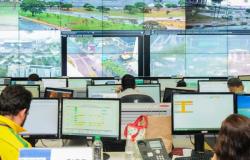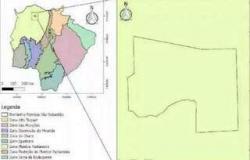Autism affects one in every 100 children worldwide, reports the World Health Organization (WHO) on World Autism Awareness Day, celebrated this Tuesday (2). The date was created in 2007 by the United Nations (UN) with the aim of disseminating information about this human neurodevelopmental condition and reducing the prejudice that surrounds people affected by Autism Spectrum Disorder (ASD).
ASD is characterized by difficulties in communication and social interaction, and may involve other issues such as repetitive behaviors, restricted interests, problems dealing with excessive sensory stimuli (loud sounds, strong smells, crowds), learning difficulties and adoption of very specific routines.
“Autism today is understood as a spectrum of very heterogeneous phenotypic manifestations, that is, there are several different manifestations of autism. And these manifestations also occur with more or less evident signs in some people”, says neuropsychologist Mayck Hartwig.
ASD can manifest itself at three levels, which are defined by the degree of support the person needs: level 1 (mild support), level 2 (moderate support) and level 3 (high support).
Co-author of the book Unique Minds and specialist in Developmental Disorders, Luciana Brites states that April 2nd is important to inform the population about autism.
“It is a disorder that has a huge impact because it mainly affects social cognition, the pillars of language. This spectrum has several nuances that make up the picture. And it is a heterogeneous picture. On one side you have autistic people with high abilities and others with intellectual disabilities. Some with hyperactivity and others calmer”, says Luciana.
According to her, it is important to have an early diagnosis, as the first signs of ASD can appear in the second year of life.
““When we are able to detect it before the age of three, we are often able to change the reality of this child, this teenager, this adult. Public education and health policies need to be very well supported so that progress can be made in the development of these children, who will become teenagers and adults.”
In Brazil, there is a National Policy for the Protection of the Rights of People with Autism Spectrum Disorder, known as the Berenice Piana Law, created in 2012, which guarantees autistic people early diagnosis, treatment, therapies and medication through the Unified Health System (SUS) , in addition to access to education, social protection and work.
Furthermore, national policy considers autistic people to be disabled for all legal purposes. In 2020, another piece of legislation, the Romeo Mion Law, created the Identification Card for People with Autism Spectrum Disorder (Ciptea), which can be issued free of charge by states and municipalities.
Ciptea is a response to the impossibility of identifying autism visually, making it easier for people to access priority care and services to which they are entitled, such as parking in a space for people with disabilities.
A person with ASD has the right to receive a minimum wage (R$1,412) per month, through the Continuous Payment Benefit (BPC), if they are unable to support themselves and the income per capita of the family is less than a quarter of the minimum wage, that is, R$353.







